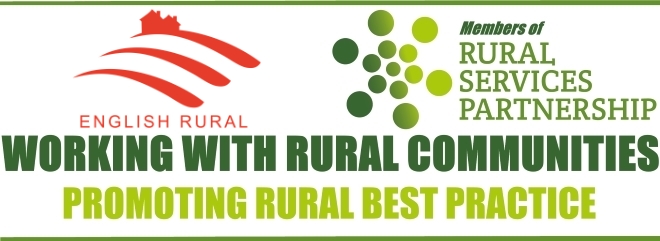T: 01822 851370 E: [email protected]
Visit RSN Survey about life in rural England to find out more.
Unlocking the ‘Magic Ingredient’: How Rural Exception Sites could be the Game-Changer for Affordable Housing in the English Countryside

Article by David Barrowcliff from English Rural Housing Association
The allure of the English countryside — its rolling hills, charming villages, and robust community spirit — is undeniable. However, a growing crisis threatens this idyllic vision: the affordable housing crisis. A new study by University College London (UCL) and English Rural illuminates the gravity of the situation and offers a viable solution — Rural Exception Sites (RES).
CLICK HERE TO READ THE FULL REPORT
The Rural Housing Crisis
The lack of affordable housing is often seen as an urban issue, but rural areas are equally affected. A slew of challenges, including conservation emphasis, limited amenities, environmental restrictions, and surging property prices, have constricted housing development in rural England. These challenges are further exacerbated by lower incomes and increasing urban migration to rural regions, making housing unaffordable for many local residents.
The Hidden Gem: Rural Exception Sites (RES)

Introduced as a national policy in 1991, RES were designed to deliver affordable homes on small rural plots that wouldn’t usually get planning permission. Over time, the policy has evolved to allow a small number of market-sale homes to facilitate the delivery of affordable units. Despite its potential, only 15% of rural authorities constructed any affordable homes on these sites in 2016 and 2017, with 37% of those built in Cornwall alone.
“Our aim is to turn the spotlight onto rural exception sites, initiating a nationwide dialogue that underscores the transformative potential that they hold for the countryside and those that live there.” — Martin Collett, Chief Executive of English Rural
Roadblocks and Solutions
The study identifies several roadblocks to the widespread adoption of RES, including a general lack of understanding, reluctance from local landowners, and opposition from local councils. However, many of these challenges can be overcome with better information.
READ OUR CASE STUDIES
Recommendations and Action Points
The research comes with actionable recommendations, including supplying every parish council with RES policy information and training Rural Housing Enablers to raise awareness. It also proposes developing guidance to incentivise landowners and creating a national programme highlighting the policy.
“Landowners are critical partners in bringing forward sites, but a range of individuals and groups need to come together to achieve project success. Our research highlights how this can happen.” — Dr Phoebe Stirling, UCL Bartlett School of Planning
Key recommendations from the research include:
- Proactive Promotion: RES deserve a front-row seat in Local Plans.
- Harnessing Collective Strength: The synergy of various stakeholders is paramount.
- Igniting National Discourse: Central government policymakers need to be instrumental in a nationwide dialogue about the untapped potential of RES.
The Way Forward
As landowners, parish councils, and local authorities, you are the stewards of rural England. The UCL-English Rural study serves as a call to action, offering a blueprint for preserving and enhancing the rural community through the strategic use of RES.
By embracing the RES policy, we not only increase the supply of affordable homes but also maintain the unique character and spirit of our rural communities. So, let’s seize this opportunity, roll up our sleeves, and ensure the English countryside remains a vibrant, inclusive community for generations to come.
CLICK HERE TO READ THE FULL REPORT




